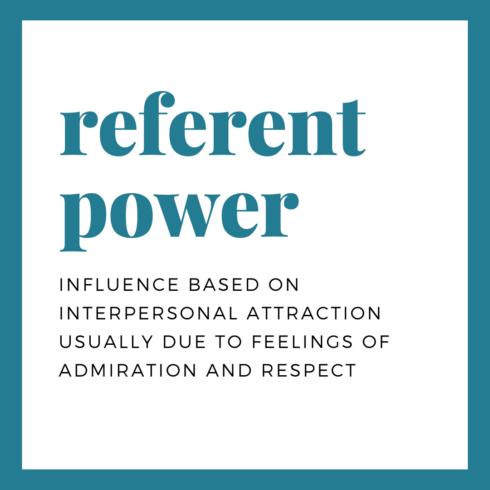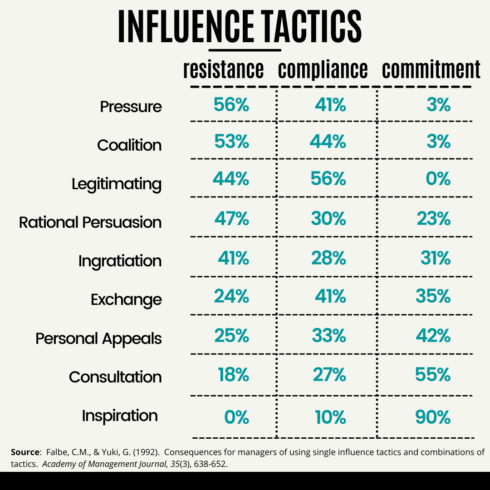Leaders are people who have followers – sounds pretty simple, right? So then, how do you get followers? Some might say that having power or authority is the answer. Classic studies on power suggest that having a formal position of authority in an organization is one way a person can apply coercion or grant rewards that are usually effective in attaining compliance from employees and subordinates. One might wonder if these “followers” are following of their own accord or merely because they are required to do so to stay employed at the company. However, if you’re only after compliance than traditional command-and-control, hierarchy-based, power methods do the trick really well.

I rarely speak with anyone who just wants compliance, though. Almost every leader I know would much rather have commitment from people who would follow you whether you have a formal position or not. To achieve this level of commitment, leaders have to do the hardwork of being people worthy of respect. This more informal (or non-hierarchy-based) power is called referent power. Referent power is based on interpersonal admiration for the person usually because they have desirable personal qualities such as strong moral character and/or charisma. When someone with referent power asks us to do something, we usually don’t think twice about it. We do it because we respect them and want to demonstrate our commitment to them. So the best place to start to gain followers is to work on your own character development. What virtues have become habitual in your life? What vices do you need to work out of your life?
 While influencing people is usually a lot easier in leader/follower dyads that are marked by referent power, it is also helpful to know which techniques you should use to better help people understand your point of view. As you can see in the side image, a range of influence tactics can be used and they differ in whether they achieve resistance, compliance, or commitment from targets.
While influencing people is usually a lot easier in leader/follower dyads that are marked by referent power, it is also helpful to know which techniques you should use to better help people understand your point of view. As you can see in the side image, a range of influence tactics can be used and they differ in whether they achieve resistance, compliance, or commitment from targets.

